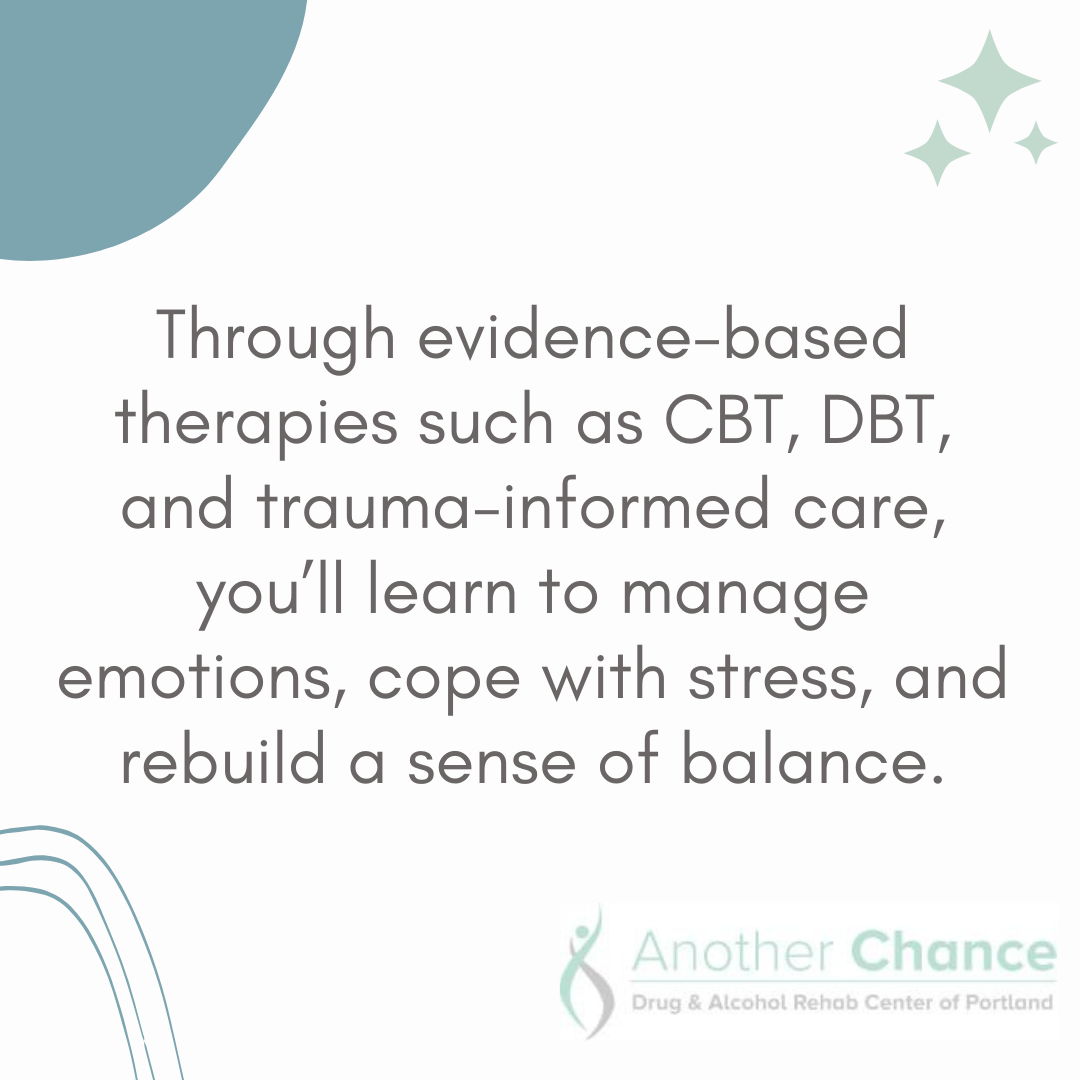October 10, 2025
Learn when it’s time to seek Portland addiction treatment and take back control. Discover how genuine, evidence-based care can help you rebuild your life.
One of the hardest parts of addiction is realizing you’ve lost control. What may begin as a way to relax, cope, or feel better can shift into something that takes over. Daily responsibilities get pushed aside, relationships break down, and health suffers. And these happen while your urge to use only grows stronger.
That loss of control can feel daunting, but it’s also the point where getting Portland addiction treatment becomes not just necessary, but life-changing.
In Portland, evidence-based programs and compassionate care are available to help you reclaim your life. This blog will discuss when it’s high time to seek professional intervention.

As any Portland addiction treatment center would know, addiction isn’t simply a matter of willpower. Addiction changes a person’s brain chemistry, making it harder to regulate use even when the consequences are obvious. This is why many people describe feeling “trapped” or “out of control.”
Below are some signs to watch out for:
Recognizing this pattern is the first step. The next key thing to do is to understand the various treatment programs available to you.
Addiction treatment Portland blends structured support with community integration, offering flexible programs that adapt to different levels of need. Here are some of the most effective programs you can access:

Among your options, outpatient rehab is a flexible and supportive path that lets you focus on recovery while still managing your daily life. In a nutshell, outpatient programs combine clinical care with real-world application, teaching strategies that you can practice immediately.
How does such a program support recovery?
In outpatient rehab, you’ll take part in individual counseling that helps you develop tools to manage cravings and avoid triggers. Group therapy provides a sense of accountability and encourages you to make healthier choices by connecting with others who understand your journey. Meanwhile, family workshops help rebuild trust and strengthen the support system you have at home, creating a stronger foundation for lasting recovery.
Together, these services prepare you for long-term sobriety while helping you reclaim balance in your everyday routines.
Not all outpatient programs are the same. And understanding the differences between outpatient treatment options in Portland can help you choose the right level of care for your recovery.
IOP Portland gives you about 9 to 12 hours of therapy each week, making it a great option if you need structured support but still want to keep up with work, school, or family responsibilities. HIOP Portland, on the other hand, involves around 15 to 20 hours per week and is better suited for you if you’ve lost more control to addiction and need closer guidance to regain stability.
Both programs are flexible, allowing you to step up or step down in care based on your progress and where you are in your recovery journey.
After exploring outpatient treatment options, it’s also important to understand how specialized programs can support recovery in specific situations.
The DUII program helps you meet Oregon’s legal requirements while also giving you the chance to look honestly at your relationship with alcohol or other substances. Through a mix of education, assessments, and counseling, you’ll learn how to make safer choices, rebuild healthy habits, and work toward regaining both your driving privileges and your sense of control.
Another specialized option within Portland addiction treatment is dual diagnosis care, and it’s designed for you if you’re facing both substance use and mental health challenges.
You might find that addiction recovery feels harder than expected — and that’s often because untreated mental health symptoms are fueling the cycle. For many people, the loss of control is compounded by underlying conditions like anxiety, depression, PTSD, or bipolar disorder, which can intensify cravings and make it even more difficult to stay sober.
At Another Chance Rehab, dual diagnosis treatment helps you address both your mental health and substance use at the same time.
Through evidence-based therapies such as CBT, DBT, and trauma-informed care, you’ll learn to manage emotions, cope with stress, and rebuild a sense of balance. This integrated approach gives you the tools to reduce relapse risk and make long-term recovery feel truly possible.

Different substances affect you in different ways, creating unique patterns of loss of control. This means your treatment needs to adapt to what you’re facing.
When considering Portland addiction treatment, it’s normal to worry about the financial side of recovery. But keep this in mind: Money should never be the reason you stay stuck in addiction.
At Another Chance Rehab, you can use private insurance, the Oregon Health Plan (Medicaid), or flexible sliding-scale payment options to make treatment more affordable. If you don’t have insurance or need extra support, Portland also offers state-funded and nonprofit programs that help cover the cost of care, so you can focus on healing instead of finances.
Starting recovery doesn’t have to be complicated. It just has to begin with the right support. At Another Chance Rehab, the intake process aims to help you begin your recovery journey as smoothly and efficiently as possible.
To give you an idea, here’s what the intake process looks like:
Aftercare then bridges the gap between treatment and independent living. At this stage, alumni groups, counseling, and relapse prevention workshops help reinforce your stability and self-confidence.

Conclusion
Addiction can strip away your sense of control, but recovery helps you take it back. Through personalized outpatient care, integrated mental health support, and flexible financial options, Another Chance Rehab offers the structure and compassion you need to rebuild your life.
If you’re ready to stop letting addiction define your choices, Portland addiction treatment centers like Another Chance are here to guide you toward lasting recovery. Get in touch today!

Reviewer
Henna is a content strategist with over 5 years of experience in behavioral health marketing. She specializes in creating informed, compassionate content for addiction treatment centers, using her deep understanding of the industry to educate, engage, and support individuals seeking recovery.